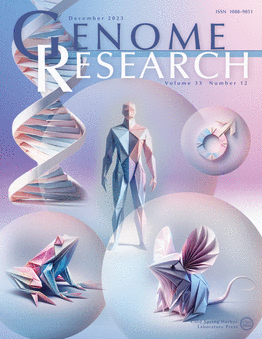FocalSV enables target region-based structural variant assembly and refinement using single-molecule long-read sequencing data
IF 5.5
2区 生物学
Q1 BIOCHEMISTRY & MOLECULAR BIOLOGY
引用次数: 0
Abstract
Structural variants (SVs) play a critical role in shaping the diversity of the human genome and their detection holds significant potential for advancing precision medicine. Despite notable progress in single-molecule long-read sequencing technologies, accurately identifying SV breakpoints and resolving their sequence remains a major challenge. Current alignment-based tools often struggle with precise breakpoint detection and sequence characterization, while whole genome assembly-based methods are computationally demanding and less practical for targeted analyses. Neither approach is ideally suited for scenarios where regions of interest are predefined and require precise SV characterization. To address this gap, we introduce FocalSV, a targeted SV detection framework that integrates both assembly- and alignment-based signals. By combining the precision of local assemblies with the efficiency of region-specific analysis, FocalSV enables more accurate SV detection. FocalSV supports user-defined target regions and can automatically identify and expand regions with potential structural variants to enable more comprehensive detection. FocalSV was evaluated on ten germline datasets and two paired normal-tumor cancer datasets, demonstrating superior performance in both precision and efficiency.FocalSV可以使用单分子长读测序数据进行基于目标区域的结构变异组装和优化
结构变异(SVs)在塑造人类基因组多样性方面发挥着关键作用,它们的检测对推进精准医学具有重大潜力。尽管单分子长读测序技术取得了显著进展,但准确识别SV断点并确定其序列仍然是一个重大挑战。当前基于比对的工具通常难以精确地检测断点和序列特征,而基于全基因组组装的方法在计算上要求很高,对于目标分析不太实用。这两种方法都不适合预先定义感兴趣区域并需要精确SV表征的场景。为了解决这一差距,我们引入了FocalSV,这是一个有针对性的SV检测框架,它集成了基于装配和对准的信号。通过结合局部组件的精度和区域特定分析的效率,FocalSV能够更准确地检测SV。FocalSV支持用户定义的目标区域,可以自动识别和扩展具有潜在结构变异的区域,从而实现更全面的检测。FocalSV在10个生殖系数据集和2个配对的正常肿瘤数据集上进行了评估,显示出在精度和效率方面的优越性能。
本文章由计算机程序翻译,如有差异,请以英文原文为准。
求助全文
约1分钟内获得全文
求助全文
来源期刊

Genome research
生物-生化与分子生物学
CiteScore
12.40
自引率
1.40%
发文量
140
审稿时长
6 months
期刊介绍:
Launched in 1995, Genome Research is an international, continuously published, peer-reviewed journal that focuses on research that provides novel insights into the genome biology of all organisms, including advances in genomic medicine.
Among the topics considered by the journal are genome structure and function, comparative genomics, molecular evolution, genome-scale quantitative and population genetics, proteomics, epigenomics, and systems biology. The journal also features exciting gene discoveries and reports of cutting-edge computational biology and high-throughput methodologies.
New data in these areas are published as research papers, or methods and resource reports that provide novel information on technologies or tools that will be of interest to a broad readership. Complete data sets are presented electronically on the journal''s web site where appropriate. The journal also provides Reviews, Perspectives, and Insight/Outlook articles, which present commentary on the latest advances published both here and elsewhere, placing such progress in its broader biological context.
 求助内容:
求助内容: 应助结果提醒方式:
应助结果提醒方式:


